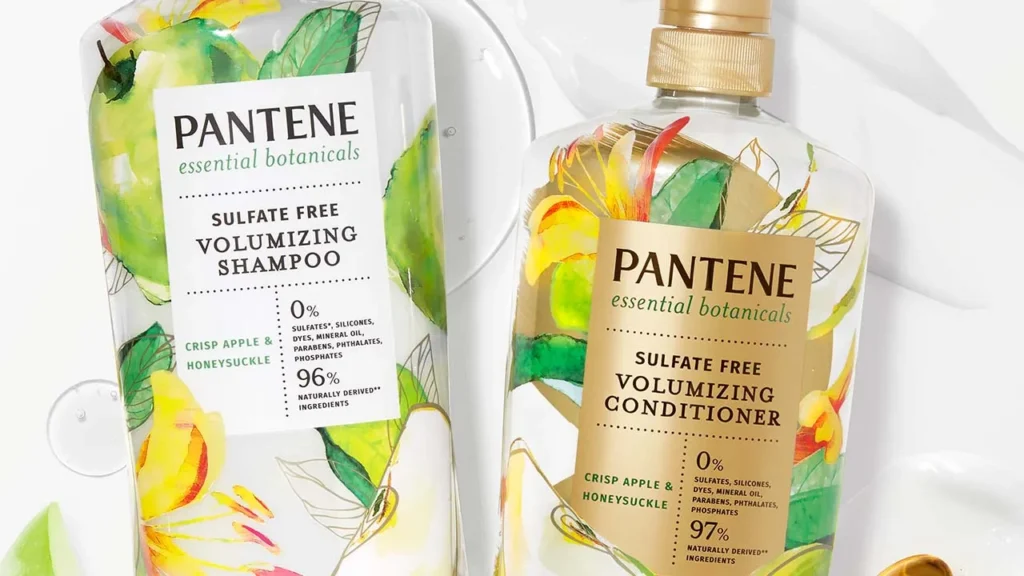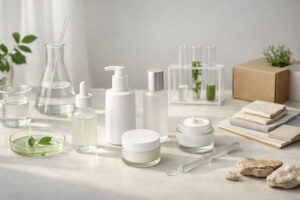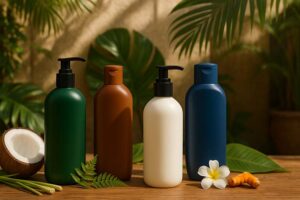Keratin Mask for Hair: How to Use, Benefits & Practices

Switching to a sulfate-free shampoo can revolutionize your hair care routine. From gently cleansing sensitive scalps to preserving color vibrancy, sulfate-free formulas offer a world of benefits. In this comprehensive guide, we’ll explore what sulfate-free shampoo is, why it matters, how to choose the perfect formula (especially in the Philippines), top brands and products, and practical tips for maximum results. Whether you’re combating frizz, protecting chemically treated hair, or simply seeking a gentler clean, you’ll find actionable insights here to elevate your hair game.
What Is Sulfate-Free Shampoo?
“Sulfates” refer to cleansing agents—most commonly sodium lauryl sulfate (SLS) and sodium laureth sulfate (SLES)—that create lather by stripping oils, dirt, and product buildup from hair. While effective at deep cleansing, sulfates can be overzealous: they may remove too much natural oil, disrupt scalp pH, and lead to dryness, irritation, or color fading.
A sulfate-free shampoo replaces SLS/SLES with milder surfactants (such as sodium cocoyl isethionate, betaines, or glucosides) that cleanse without harsh stripping. These formulas still foam and rinse out well, but they’re gentler on hair fibers and scalp barrier, making them suitable for:
Color-treated or chemically processed hair (prevents premature fading)
Curly, dry, or frizz-prone hair (retains natural oils)
Sensitive scalps (reduces itch and irritation)
Low-lather preferences (eco-friendly, less suds)
Learn more about the science of surfactants on Wikipedia “What is sulfate-free shampoo?” for deeper insights.
Key Benefits of Going Sulfate-Free
Maintains Natural Oils & Moisture
By avoiding aggressive detergents, sulfate-free shampoos help hair retain its protective sebum, reducing dryness and breakage.Preserves Color & Shine
Many colorists recommend sulfate-free cleansing to extend the life of salon hair color, as sulfates can strip dyes more readily than mild alternatives.Gentler on Scalp
If you suffer from eczema, psoriasis, or a sensitive scalp, sulfate-free formulas minimize irritation and restore comfort.Enhances Curl Definition
Curly and coily hair thrives on moisture; sulfate-free shampoos leave you with less frizz and more defined ringlets.Eco-Friendly Footprint
Lower sudsing means less water consumption and milder wastewater—plus, many sulfate-free brands lean into biodegradable ingredients.
Discover more benefits in this Healthline article on sulfate-free shampoo benefits.
The Role of pH in Shampoo Formulations
A shampoo’s pH influences hair cuticle health, moisture balance, and scalp homeostasis. The ideal pH for most shampoos falls between 4.5 and 5.5, matching the natural acid mantle of hair and skin.
pH 4.5–5.5: Seals the cuticle, enhances shine, reduces tangling, and discourages bacterial growth.
pH above 6.0: Can lift cuticles, leading to dullness, tangles, and moisture loss.
pH below 4.0: Risks scalp irritation if overly acidic.
Many sulfate-free shampoos formulate around pH 5.0–5.5 to deliver maximum gentleness and manageability.
Who Should (and Shouldn’t) Use Sulfate-Free Shampoo
Ideal Candidates
Color-treated or keratin-treated hair
Dry, curly, or coily textures
Sensitive or allergy-prone scalps
Those seeking eco-friendly, low-suds cleansing
When to Pause
Heavy product build-up (occasional clarifying with a mild sulfate-based cleanser helps)
Extremely oily scalps (might need more potent degreasing occasionally)
Hard water areas (seek formulas with chelators like EDTA or citric acid)
Top Sulfate-Free Shampoos in the Philippines (2025 Picks)
Based on availability at Watsons, Shopee, HairMNL, Zalora, Human Nature, and Simply Beauty, here are our top 10 picks:
| Brand & Line | Key Features | Price Range (PHP) | Where to Buy |
|---|---|---|---|
| Human Nature Gentle Daily Shampoo | 100% plant-based, pH-balanced, vegan | ₱199–₱299 | HumanHeartNature |
| Pantene Pro-V Repair & Protect Sulfate-Free | Pro-Vitamin formula, smooths split ends | ₱200–₱350 | Shopee, Watsons |
| Dove Nutritive Solutions Sulfate-Free | Nourishment for dry hair, silicone-free | ₱180–₱280 | Zalora |
| Garnier Fructis Sulfate-Free Strength Mask 3-in-1 | Shampoo + mask + scalp treat, fruity scent | ₱220–₱320 | Watsons, Shopee |
| Herbal Essences Bio:Renew Repair | Infused with argan oil & aloe; cruelty-free | ₱250–₱400 | Watsons, Lazada |
| Tresemmé Keratin Smooth Sulfate-Free | Keratin infusion, anti-frizz for 72 hours | ₱300–₱450 | HairMNL, Zalora |
| Palmolive Naturals Milk & Honey | Hydrating milk proteins, budget-friendly | ₱150–₱220 | Shopee, Watsons |
| Sunsilk Perfect Straight Sulfate-Free | Silk proteins, reduces frizz | ₱160–₱260 | Watsons, Shopee |
| Love, Beauty & Planet Murumuru Butter & Rose | Sustainable sourcing, softening | ₱280–₱450 | Zalora, SimplyBeauty |
| Maui Moisture Heal & Hydrate | Aloe vera, papaya extract, paraben-free | ₱320–₱500 | Watsons, Lazada |
Note: Prices are approximate and may vary by retailer.
How to Choose the Right Sulfate-Free Shampoo
Identify Your Hair Needs
Moisture vs. Volume: Look for butters/oils vs. rice proteins.
Scalp Concerns: Tea tree, salicylic acid, or niacinamide for dandruff/oil control.
Check the Ingredient List
Mild Surfactants: Cocamidopropyl betaine, sodium cocoyl isethionate.
Beneficial Add-Ins: Keratin, biotin, amino acids, plant oils.
Avoid: Parabens, phthalates, silicones (if you prefer fully “clean” formulations).
Match Your pH Preference
Aim for formulas labeled “pH-balanced” or around 5.0.
Consider Eco & Ethical Claims
Biodegradable surfactants, cruelty-free, refill programs, FSC-certified packaging.
Budget & Accessibility
Drugstore vs. salon brands; local availability on Shopee, Lazada, Watsons, Zalora, or brand websites.
Pro Tips for Best Results
Pre-wash Routine: Massage scalp with oil (coconut, argan) 30 minutes before shampoo to protect lengths.
Gentle Application: Lather in palms first, then apply to roots; let suds rinse through ends.
Rinse with Cool Water: Seals cuticle & boosts shine.
Co-Wash Occasionally: Use conditioner-only wash for very dry/coily textures.
Rotate Cleansers: Use a mild clarifier (once every 4–6 weeks) to prevent buildup.
Try Xiangxiang Daily Now!
We Help You Launch New Products, And Continue To Grow. Try Us With 20% Off Your First Order!
In Summary
Sulfate-free shampoos offer a gentler, more nourishing approach to cleansing—ideal for color-treated hair, sensitive scalps, and anyone seeking healthier, shinier locks. By understanding pH balance, surfactant types, and key ingredients, you can choose a formula that meets your unique needs. In the Philippines, a wide range of effective, budget-friendly sulfate-free options are readily available online and in-store at Watsons, Shopee, Zalora, and specialty retailers like Human Nature and HairMNL. With the tips and product picks above, you’re equipped to make an informed, eco-conscious choice and unlock your best hair ever.
Frequently Asked Questions
Q: Is sulfate-free shampoo really better?
A: For many hair types—especially color-treated, dry, or sensitive—sulfate-free shampoos help retain natural oils and protect hair health. Those with heavy buildup or extremely oily scalps may still benefit from occasional sulfate-based clarifiers.
Q: Which shampoo is without sulfates?
A: Brands like Human Nature, Dove Nutritive Solutions Sulfate-Free, Pantene Pro-V Sulfate-Free, Tresemmé Keratin Smooth, and Herbal Essences Bio:Renew all offer sulfate-free formulas.
Q: Who should not use sulfate-free shampoo?
A: Individuals with very oily scalps or significant product build-up might find mild sulfates more effective—though co-washes and scalp treatments can often bridge this gap.
Q: What pH level is best for sulfate-free shampoo?
A: Aim for pH 4.5–5.5 to maintain cuticle integrity, lock in moisture, and support scalp health.
Q: How do I know if a shampoo is sulfate-free?
A: Check the ingredient list: avoid sodium lauryl sulfate (SLS), sodium laureth sulfate (SLES), ammonium lauryl sulfate (ALS), and related surfactants. Look for gentler alternatives like cocamidopropyl betaine or sodium cocoyl isethionate.
Table of Contents
Latest Blog Posts
Check out the latest industry trends and take inspiration from our updated blogs, giving you a fresh insight to help boost your business.



